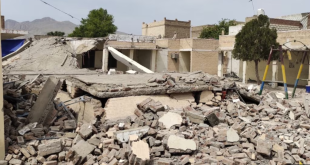KABUL – The Taliban’s Deputy Ministry of Economic Affairs announced today that Afghanistan has achieved complete self-sufficiency in 130 sectors and partial self-sufficiency in 40 others. This claim underscores the regime’s emphasis on economic independence.
The National Development Corporation (NDC), established during the previous government, has played a pivotal role in this achievement. Under Taliban leadership, the NDC has overseen significant infrastructure projects, including the ambitious Qosh Tepa Canal, aimed at diverting water from the Amu Darya to irrigate arid regions. Despite challenges such as water loss from evaporation and seepage, the canal project continues to be a central element of the Taliban’s development strategy.
While the Taliban’s self-sufficiency claims highlight progress in certain sectors, experts caution that the country still faces significant economic challenges. The economy contracted by over 20% in 2021 and 6.2% in 2022, with key sectors such as agriculture and industry experiencing substantial declines. Additionally, the country remains heavily reliant on imports for essential goods, including wheat and energy resources.
The international community continues to monitor Afghanistan’s economic developments, with particular attention to the Taliban’s ability to maintain self-sufficiency amidst ongoing challenges.
 Afghanistan Times
Afghanistan Times




